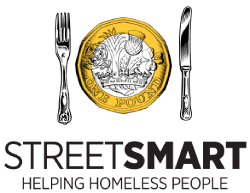What is homelessness?
Homelessness is often misunderstood. It’s not a ‘cute’ cause, so it’s hard to feel empathy for something most of us are fortunate enough never to have endured. Homelessness is not suffered through choice – everyone is vulnerable.
In order to become homeless, a person has to have suffered a personal crisis. Once alone and vulnerable, the slide into a vicious downward spiral is inevitable and traumatic, bringing with it a state of hopelessness most of us have never experienced. From these depths it is hard to remember or imagine life as the rest of us know it, let alone engage positively with society.
Common reasons people become homeless include:
- Family breakdown
- Bereavement
- Redundancy
- Leaving institutional living (army, police, social care, prison)
- Mental illness
- Childhood abuse / domestic violence
- Substance abuse (the underlying cause of which is often one or more of the above)
The word ‘home’ conjures feelings of warmth, family, friendship and love. To be homeless is to be alone, with no one to care about you. Tackling homelessness is not just about providing shelter from the elements, it is about providing advice, advocacy, education and meaningful occupation, but above all, care within a community that can be called ‘home’. This is what StreetSmart looks for in the projects that benefit from the campaign, and what it hopes to enable the homeless to find.
StreetSmart aims to support homeless organisations that provide the most personal and therefore most effective care; where a person is recognised as being an individual rather than just another statistic. For many of these projects, especially smaller community projects, the funding StreetSmart provides is an essential lifeline.
StreetSmart provided funding to more than 100 such homeless projects last year. Since it was established in 1998, StreetSmart has granted funding to over 200 organisations, providing a broad range of services, support and companionship to the homeless and vulnerable across the UK. Last year alone, we were able to support approx. 4,000 homeless and vulnerable people through these initiatives.
Where does the money go?
Facts:
12,000 different people sleep rough last year in London. 19% up on the previous year
Thames Reach118,000 young people experience homelessness each year
Centrepoint, 2024131,140 households in England are living in temporary accommodation
Rough Sleeping Statistics Autumn 2024, England, Gov.uk60% of single homeless people in the UK are hidden and may not show up in official figures
Crisis Homelessness Monitor4,667 people sleep rough on any one night in England, 20% increase on previous year
Crisis Homelessness Monitor, 2024
In November and December 2024, StreetSmart raised £1,029,000. A snapshot of some of the things we were able to help provide as a result of this include 2,724 meals, 1,180 beds, 94 new jobs, 197 successful training schemes and 692 people were able to receive housing advice. Since its beginnings in 1998, the scheme has raised and distributed over £15m.
Year on year we’ve grown significantly, both in terms of money raised and number of restaurants taking part. Now over 40 homeless charities benefit from the campaign – five times more than in 1998.
All the charities that receive funds from StreetSmart have been carefully selected and are visited by at least one StreetSmart representative. The projects funded are all aimed at getting people off the streets and onto their feet again. Some of the money does go to the basics, such as a bed, a shower, a pair of shoes, but the charities we fund don’t stop there as that rarely solves the problem. The money goes to those who support people through crucial stages in their progress from vagrant to valued community member:
- Outreach teams search for the ‘hidden’ homeless; men and women, young and old, alone and vulnerable.
- Day centres; basic human needs provided for, companionship and help offered.
- A relationship of trust is built and advice and advocacy offered; family mediation, benefits obtained, accommodation sought.
- Health and well-being issues are addressed; mental health, substance abuse, counselling.
- Supported housing and therapeutic activities.
- Education and training; life skills and employment qualifications.
- Finding a permanent place to live, an occupation in life.
- Charities receive between £500 and £20,000, depending on the project/service to be funded.
- 60% of the funds raised supports youth homelessness projects.



